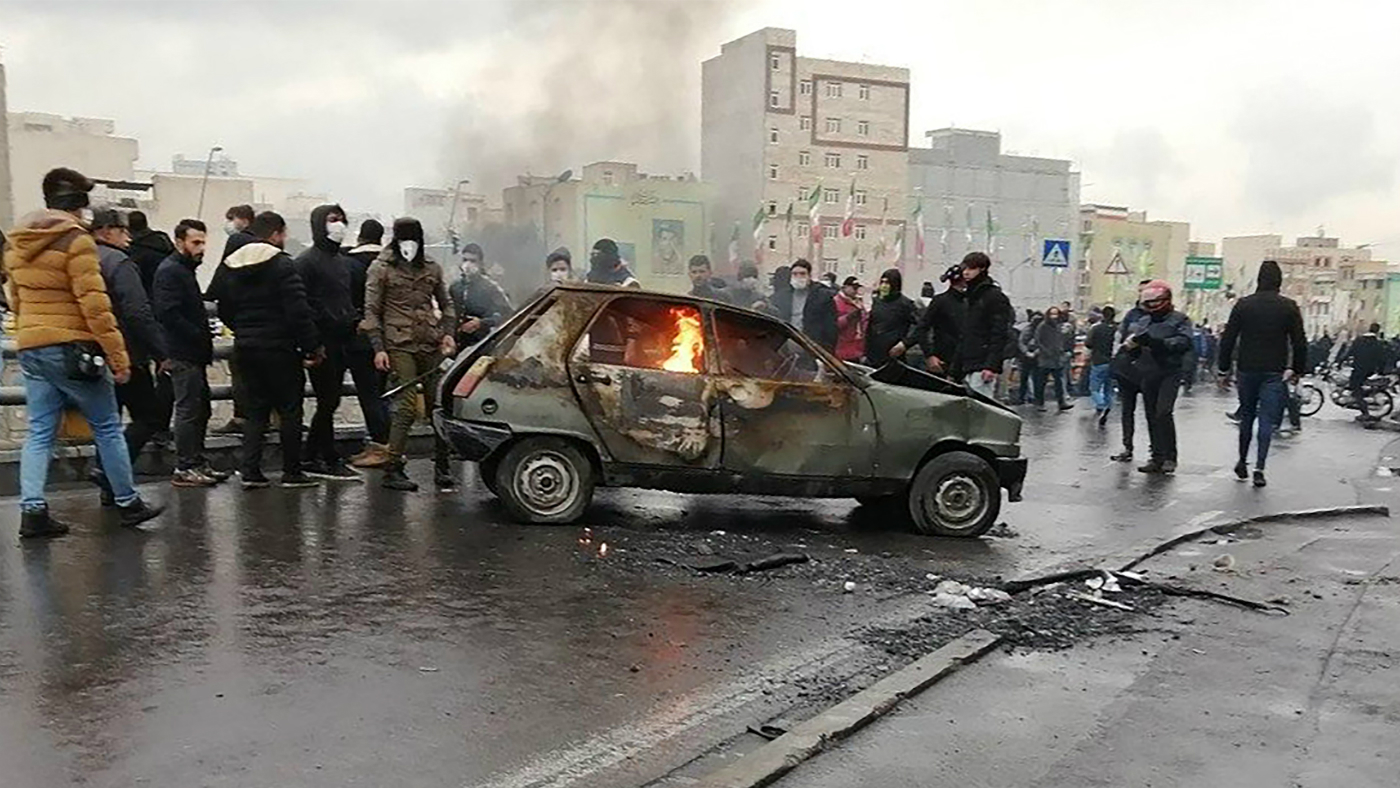Revealed: the ‘brutal’ torture methods used by Iranian security forces
Amnesty International report exposes ‘interrogation tactics’ used on prisoners in post-protests crackdown

A free daily email with the biggest news stories of the day – and the best features from TheWeek.com
You are now subscribed
Your newsletter sign-up was successful
Amnesty International has accused Iran’s security forces of torturing hundreds of prisoners in order to extract confessions in the wake of anti-government protests.
Price hikes on fuel introduced in November last year became the catalyst for demonstrations across Iran, leading to “mass arrests amid a near-total internet blackout”, the Daily Mail reports.
Amnesty’s Middle East deputy director Diana Eltahawy says that “in the days following the mass protests, videos showing Iran’s security forces deliberately killing and injuring unarmed protesters and bystanders sent shockwaves around the world”.
The Week
Escape your echo chamber. Get the facts behind the news, plus analysis from multiple perspectives.

Sign up for The Week's Free Newsletters
From our morning news briefing to a weekly Good News Newsletter, get the best of The Week delivered directly to your inbox.
From our morning news briefing to a weekly Good News Newsletter, get the best of The Week delivered directly to your inbox.
But “much less visible has been the catalogue of cruelty meted out to detainees and their families by Iranian officials away from the public eye”, she adds.
In a report outlining the alleged abuses, Amnesty claims that the techniques used by Iran’s security forces to secure confessions included electric shocks, solitary confinement, stress positions, waterboarding and the forced administration of chemical substances.
The human rights watchdog also says that prisoners were beaten, denied medical care and subject to sexual violence and humiliation.
“It felt like my entire body was being pierced with millions of needles,” a man who claims to have been subject to electric shocks told Amnesty investigators.
A free daily email with the biggest news stories of the day – and the best features from TheWeek.com
The NGO claims that more than 500 people were “held incommunicado” and denied access to legal aid. A total of around 7,000 men, women and children as young as ten were arrested.
The newly published report says that prison terms for those subsequently convicted “have ranged from between one month and ten years for vague or spurious national security charges” including “spreading propaganda against the system”, “disrupting public order” and “insulting” Iran’s Supreme Leader Ali Khamenei.
According to Eltahawy, prosecutors brought charges “against hundreds of people solely for exercising their rights to freedom of expression, association and peaceful assembly, while judges doled out guilty verdicts on the basis of torture-tainted ‘confessions’”.
Iran blamed last year’s violence on “thugs” supported by the US, Israel and Saudi Arabia. Iran’s interior minister also “suggested that up to 225 people died during the protests, when petrol pumps were set on fire, police stations attacked and stores looted”, Deutsche Welle reports.
-
 El Paso airspace closure tied to FAA-Pentagon standoff
El Paso airspace closure tied to FAA-Pentagon standoffSpeed Read The closure in the Texas border city stemmed from disagreements between the Federal Aviation Administration and Pentagon officials over drone-related tests
-
 Political cartoons for February 12
Political cartoons for February 12Cartoons Thursday's political cartoons include a Pam Bondi performance, Ghislaine Maxwell on tour, and ICE detention facilities
-
 Arcadia: Tom Stoppard’s ‘masterpiece’ makes a ‘triumphant’ return
Arcadia: Tom Stoppard’s ‘masterpiece’ makes a ‘triumphant’ returnThe Week Recommends Carrie Cracknell’s revival at the Old Vic ‘grips like a thriller’
-
 Epstein files topple law CEO, roil UK government
Epstein files topple law CEO, roil UK governmentSpeed Read Peter Mandelson, Britain’s former ambassador to the US, is caught up in the scandal
-
 Iran and US prepare to meet after skirmishes
Iran and US prepare to meet after skirmishesSpeed Read The incident comes amid heightened tensions in the Middle East
-
 Which way will Trump go on Iran?
Which way will Trump go on Iran?Today’s Big Question Diplomatic talks set to be held in Turkey on Friday, but failure to reach an agreement could have ‘terrible’ global ramifications
-
 Israel retrieves final hostage’s body from Gaza
Israel retrieves final hostage’s body from GazaSpeed Read The 24-year-old police officer was killed during the initial Hamas attack
-
 China’s Xi targets top general in growing purge
China’s Xi targets top general in growing purgeSpeed Read Zhang Youxia is being investigated over ‘grave violations’ of the law
-
 Panama and Canada are negotiating over a crucial copper mine
Panama and Canada are negotiating over a crucial copper mineIn the Spotlight Panama is set to make a final decision on the mine this summer
-
 Iran unleashes carnage on its own people
Iran unleashes carnage on its own peopleFeature Demonstrations began in late December as an economic protest
-
 How oil tankers have been weaponised
How oil tankers have been weaponisedThe Explainer The seizure of a Russian tanker in the Atlantic last week has drawn attention to the country’s clandestine shipping network